The AI-amplified future of work in public sector research and science
From public health to space exploration, AI can help government researchers work faster, uncover deeper insights, and tackle some of society’s toughest challenges
One of government’s responsibilities is to advance basic research, scientific breakthroughs, and innovation to generate knowledge, inform policy, and address societal challenges with evidence-based solutions. Artificial intelligence, AI agents, and generative AI technologies are revolutionizing how government agencies conduct research—speeding up scientific discovery, improving accuracy, and enabling new ways to address pressing challenges such as energy resilience, public health crises, and technological innovation.
AI algorithms can process and analyze vast data sets from environmental studies, public health records, and space exploration missions, identifying critical trends and correlations that might otherwise go unnoticed. Gen AI can scan and summarize vast amounts of scientific literature, keeping researchers up to date with the latest developments while drastically reducing the time spent on literature reviews. AI agents can even automate certain routine laboratory tasks, such as data entry and experiment monitoring, freeing up scientists to focus on more complex and creative aspects of their work.
From engineers, scientists, doctors, researchers, and economists to statisticians, mathematicians, data scientists, astrophysicists, and biologists, numerous occupations support the government’s work in the field of research and science. In addition to the unique job-specific applications of AI technology, there are several that are common across roles.
How can AI change the government data scientist role?
Let’s take a closer look at how AI technologies could enable workers in this field to work smarter, though the example of a government data scientist. Click through the slides below or download the complete PDF.
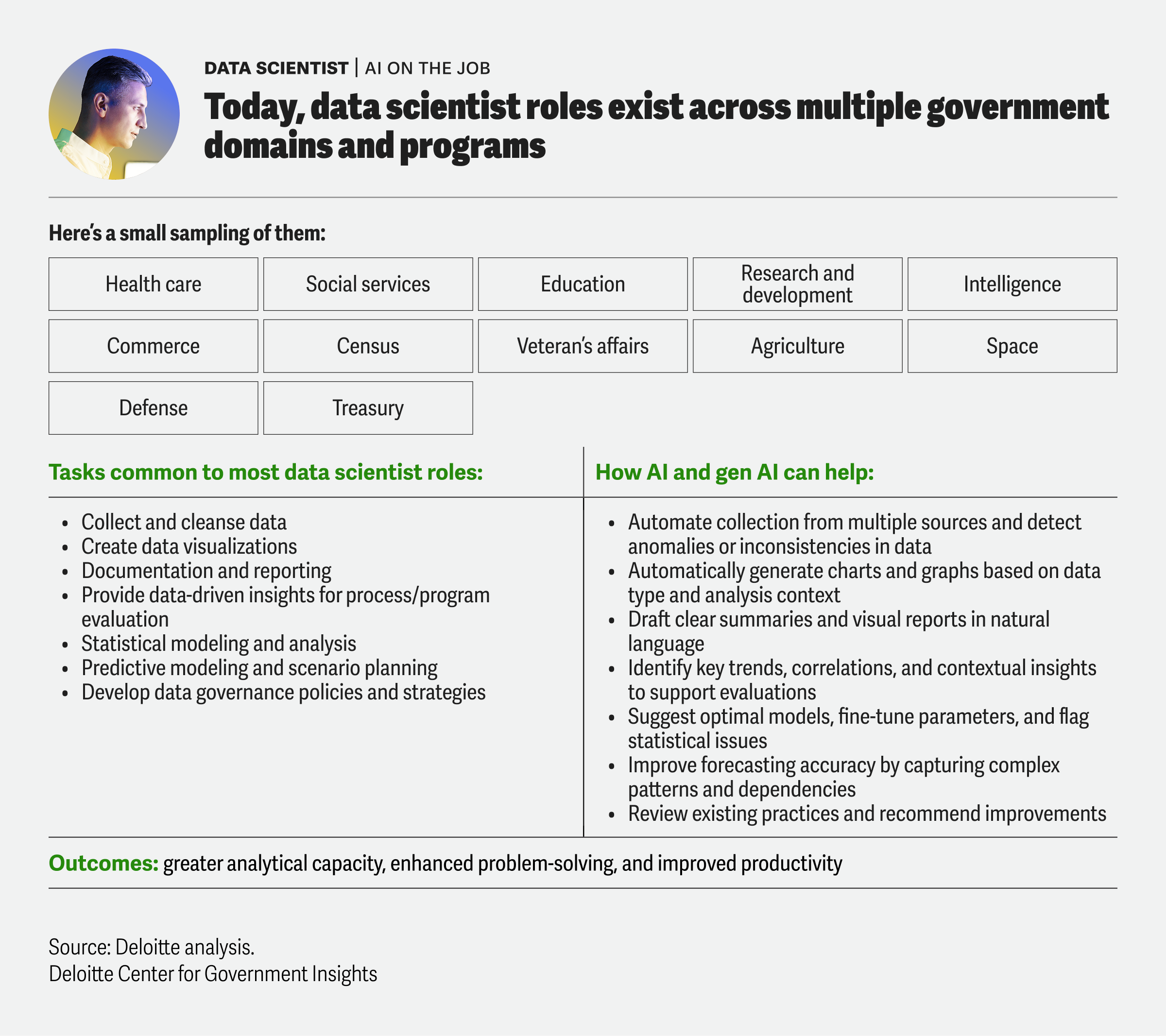
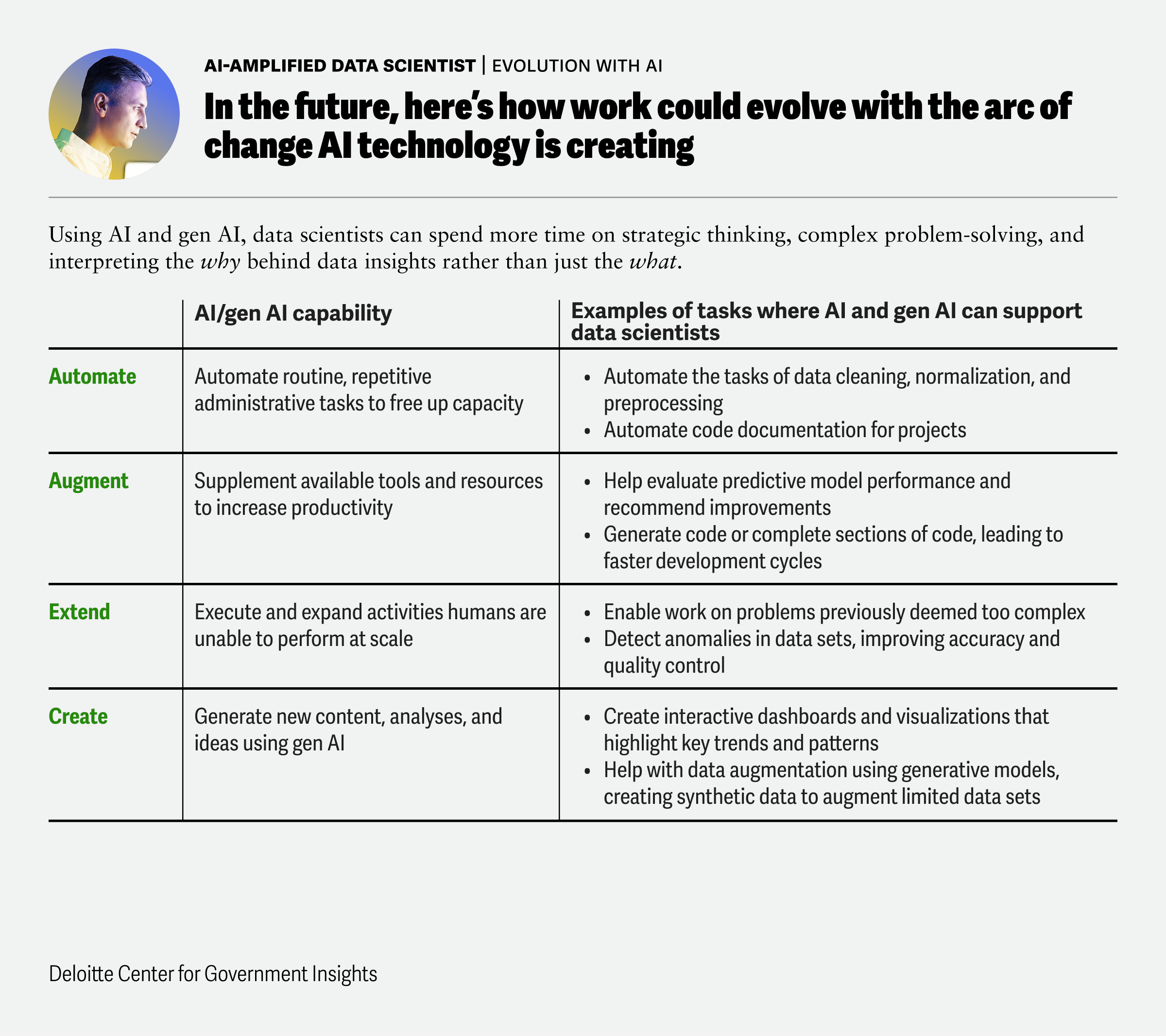
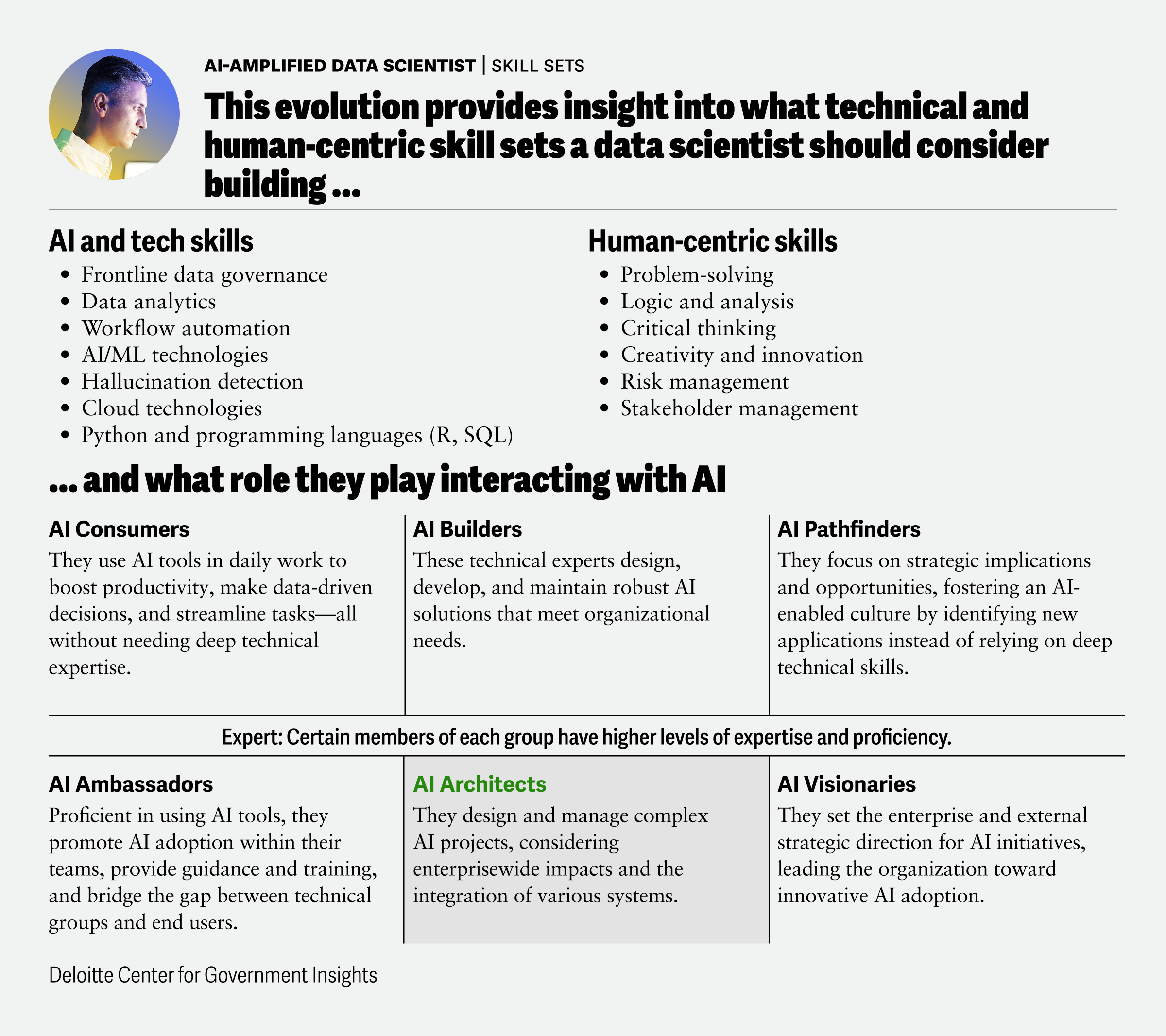
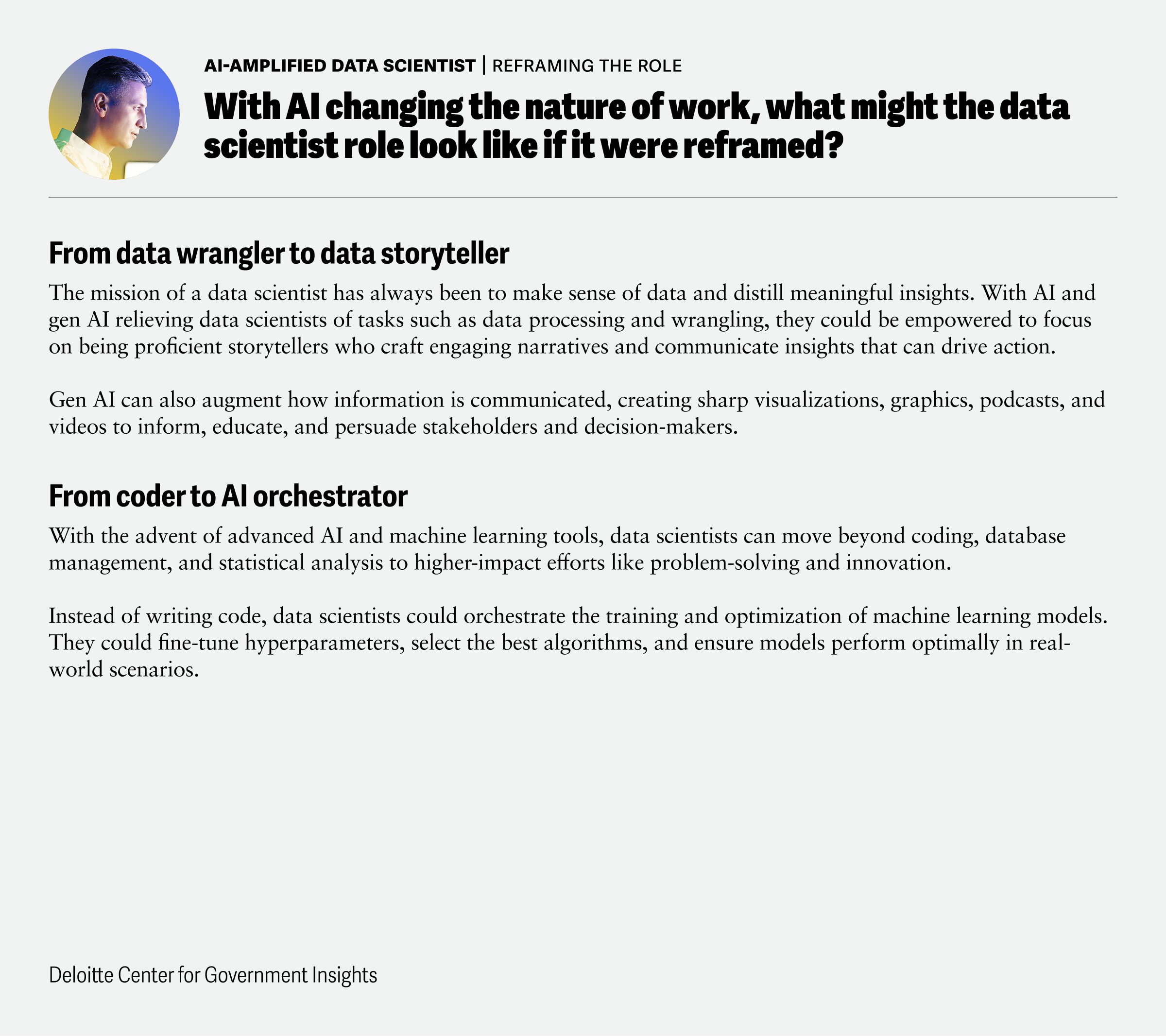
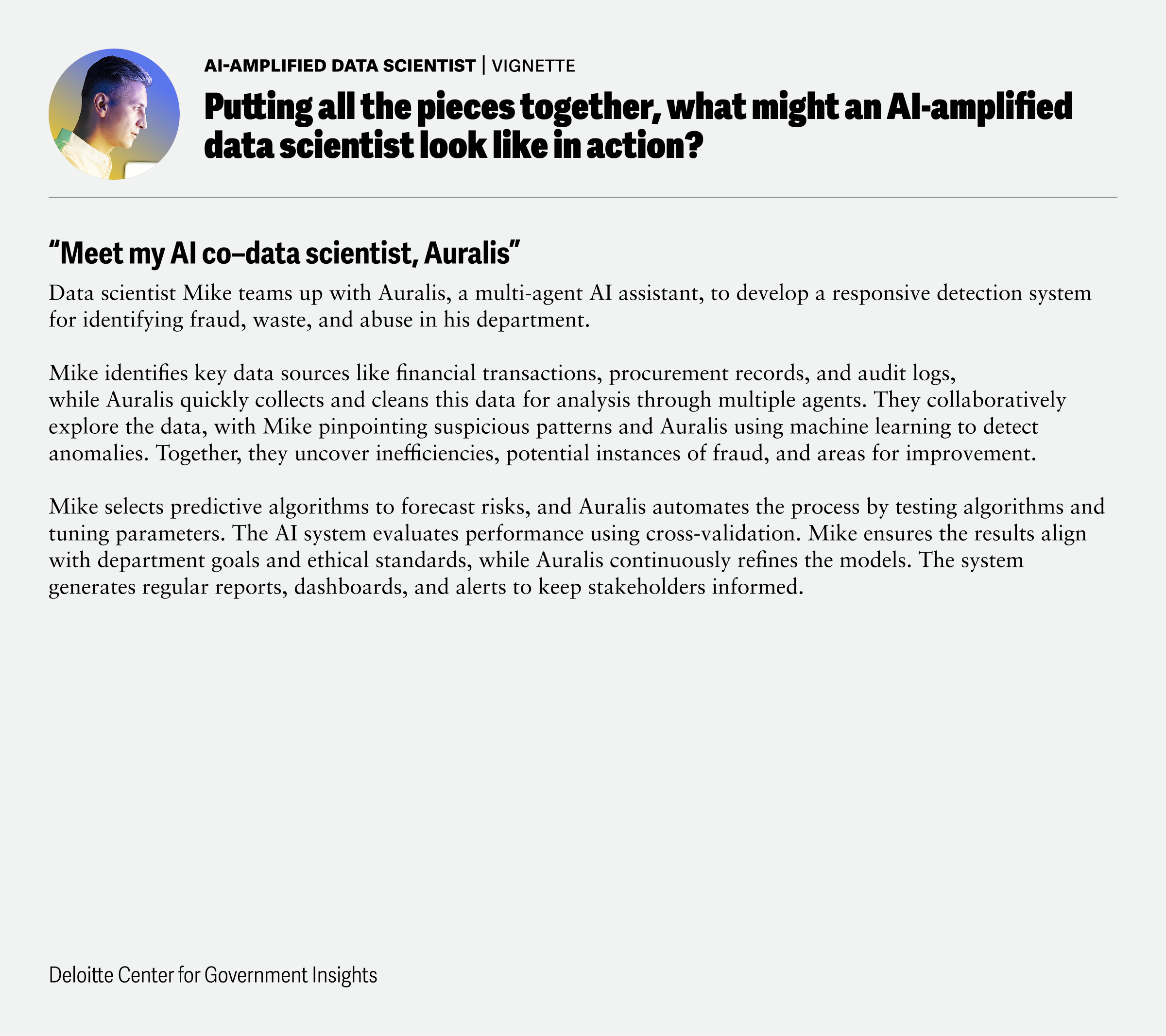
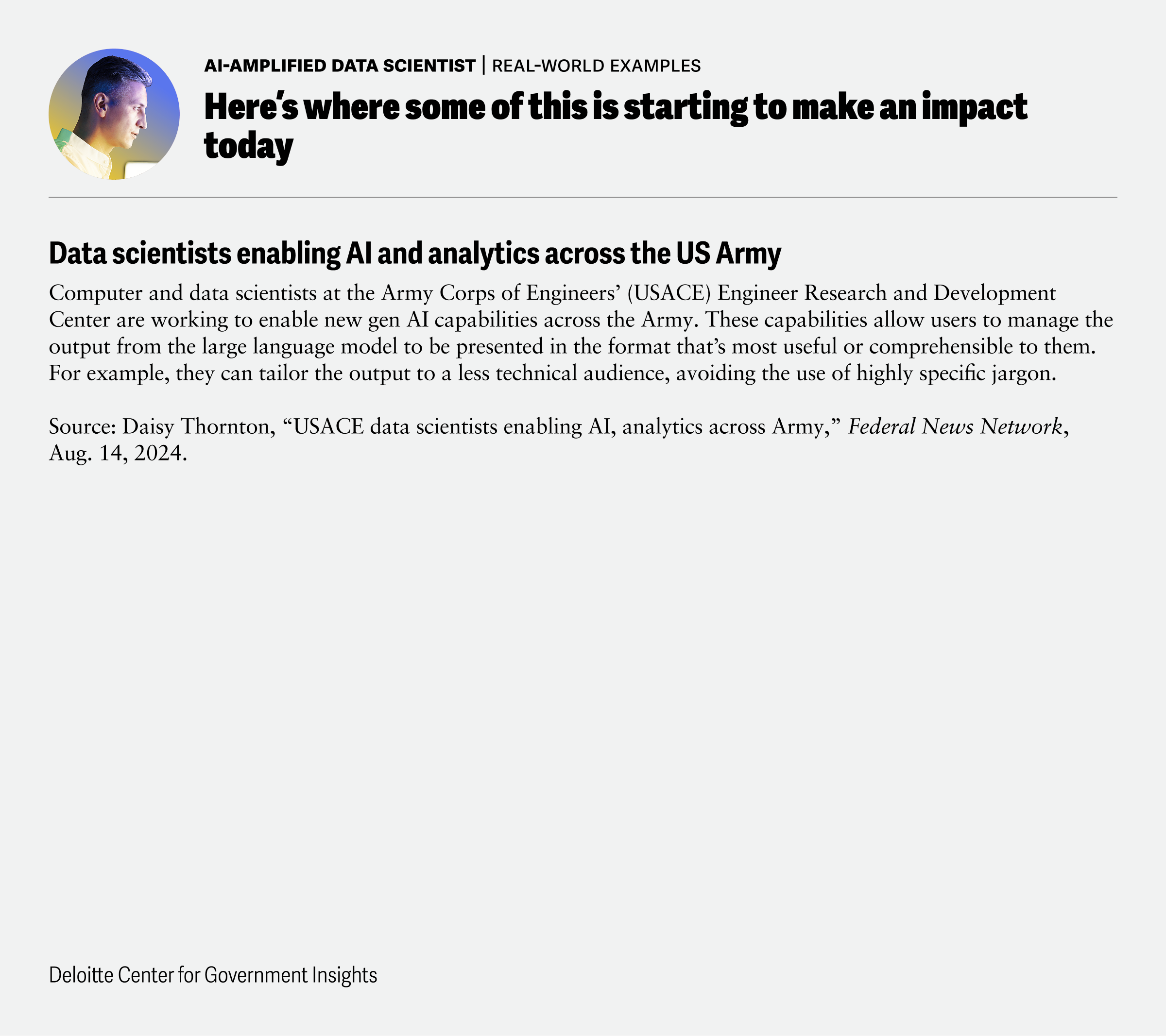
What’s next?
As technology continues to evolve, entirely new roles are expected to emerge that blend AI-driven insights with interdisciplinary expertise. One such future role could be the whole health catalyst, a specialist who would be dedicated to advancing a holistic approach to public health. What might this brand-new job look like?
The whole health catalyst: A possible future role in government research and science
- Mission: Whole health catalysts could integrate scientific research, public health data, and emerging innovations to develop policies and practices that center on wellness rather than simply treating illness.
- Key responsibilities may include:
- Continuously scanning medical, social, and environmental research to identify trends in health and wellness.
- Collaborating with experts across disciplines to integrate findings into public health strategies.
- Exploring new technologies and innovations, from biotech to nutrition science, to help proactively address health challenges.
- Shaping policies that emphasize prevention, community investments, and holistic health approaches.
On-the-job impact
Ted, a whole health catalyst, wraps up his video call with the team of researchers from France that he has been working with over the past month. Given the promising results they shared from their pilot project around nutrition education in schools, Ted and his colleagues are eager to explore a local pilot that combines strategies from their own food science research. With insights from the call and additional research synthesized by his AI-assistant, Ted reviews profiles of shortlisted schools that could be good candidates for the pilot. After some brainstorming with his colleagues, he begins work on the proposal, excited by the possibilities that advancing wellness through childhood nutrition could unlock.